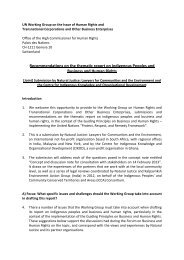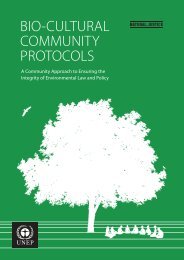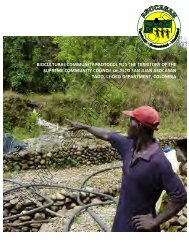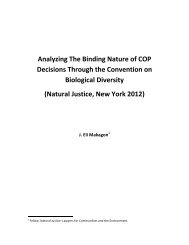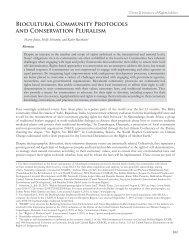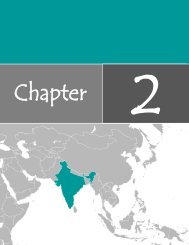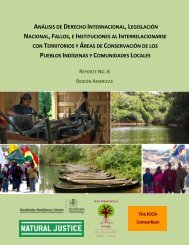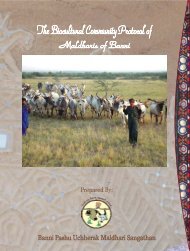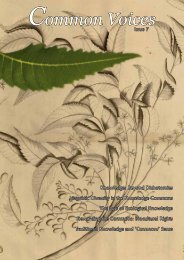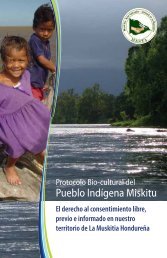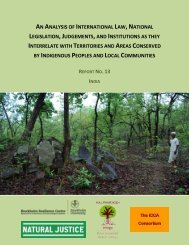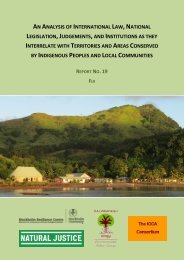English - Natural Justice
English - Natural Justice
English - Natural Justice
You also want an ePaper? Increase the reach of your titles
YUMPU automatically turns print PDFs into web optimized ePapers that Google loves.
where the fishing rights or qoliqoli (traditional fishing grounds) of a mataqali (clan) arerecognized in the Register of i Taukei Customary Fishing Rights; members of the mataqalithemselves are excepted. This allows for the involvement of communities in the governanceof the coastal zones and the application of customary laws to regulate the i qoliqoli in someinstances. Notably, by 2011, there were over 149 Locally Managed Marine Areas (LMMAs)managed by 400 communities, covering half the area of Fiji’s qoliqoli.Reform Environmental and <strong>Natural</strong> Resource Laws to Enhance Rights andRemove Direct Threats to ICCAsFirst, states should ensure the full and effective participation of Indigenous peoples and localcommunities, including women, in all decision-making processes related to the environmentand natural resources. Second, states should reform environmental and natural resourcelaws to fully comply with international human rights instruments and customary laws oftraditional authorities. Third, states should remove subsidies and perverse incentives forlarge-scale, industrial methods of extraction, production and development that threatenICCAs directly or indirectly. Fourth, states should review existing concessions and withholdthe issuance of new titles or licenses that may conflict or overlap with ICCAs withouteffective realization of the right to FPIC and other international and customary rights andprocedures of the affected peoples or communities.Integrated Socio-ecological SystemsNamibia’s Communal Conservanciesare based on the Policy on WildlifeManagement, Utilisation andTourism in Communal Areas (1995)and the subsequently enactedNature Conservation AmendmentAct (1996). The Act provides forrural communities to formconservancies and gain use rightsover wildlife and tourism within theconservancies.Article 96 of Panama’s Wildlife Law(1998) states that the NationalEnvironmental Authority willcoordinate all matters related to theenvironmental and naturalresources in Indigenous peoples’territories with the traditionalCommunity game guards download GPS data during the annualgame count in the Mayuni Conservancy, North Eastern Namibia.© Olga Jonesauthorities of the relevant peoples and communities. The law also stipulates in Article 104that when authorizing the use of natural resources in Comarcas or the lands of Indigenouspeoples, projects presented by the members of the community will be preferred, providedthey meet the conditions and procedures established by the competent authorities.



